Professions related to the earth sciences are among the oldest fields of human endeavor. Today, the basic knowledge of geological engineering is needed in all areas of life, from mines to energy exploration, from water resources discovery and utilization to basic survey studies of engineering structures, from understanding the Earth's surface to space exploration. Geological engineering is one of the brightest professions of the present and the future.
KTU Geological Engineering, 59 years of experience
Our department, which is one of the best geological engineering departments in our country, has been training the geological engineers our country needs for 59 years. The advantage of being located in the Eastern Black Sea region, which is a natural laboratory in almost all fields of geology, and the fact that our department carries out its educational and training activities in a practical way in the field, make our graduates engineers who are sought after both in the industry and in academic fields.
Karadeniz Technical University's Geological Engineering Department is one of the oldest geology departments established in our country. After Prof. Dr. Hans Pflug, a German geologist, took office at KTU on Tuesday, December 14, 1965, it was decided to open our department as the Institute of Geology affiliated to the Faculty of Basic Sciences in the second meeting of the general assembly of the university faculty members and assistants held under the chairmanship of Dean Prof. Dr. Halis Duman on Thursday, December 16, 1965. It was unanimously decided to open the Department of Geology, to admit 35 students to the Department, to make these students only students of the Department of Geology and to prepare a curriculum. This was the third department opened at KTU after the departments of civil engineering and architecture.
The first president of the Geological Institute was Prof. Dr. Hans Pflug. The first members of the Geology Department were Prof. Dr. Hans Pflug, Dr. Togan Ş. Önay, Ass. Türker Özsayar, Ass. Ükkaş Ağar and Ass. Özkan İşgüden. Prof. Dr. Hans Pflug left KTU in 1967 and Dr. Altan Gümüş was appointed as the chairman. Later, Prof. Dr. Mustafa Aslaner, Prof. Dr. Yususf Tatar, Prof. Dr. İsmet Gedik, Prof. Dr. Şakir Abdüsselamoğlu, Prof. Dr. Remzi Dilek, Prof. Dr. Erkan Tanyolu, Prof. Dr. Necati Tüysüz, Prof. Dr. Burhan Sadıklar, Prof. Dr. Cemil Yılmaz, Prof. Dr. Cemil Yılmaz, Prof. Dr. Burhan Sadıklar, Prof. Dr. Burhan Sadıklar, Prof. Dr. Cemil Yılmaz, Prof. Dr. Necati Tüysüz. Prof. Dr. Cemil Yılmaz, Prof. Dr. Sadettin Korkmaz, Prof. Dr. Cüneyt Şen, Prof. Dr. M. Ziya Kırmacı and Prof. Dr. Fatma Gültekin were the heads of the department at different times.
The Department of Geological Engineering, which started its education in 1965, remained part of the Faculty of Basic Sciences until 1973. In 1973, the Faculty of Earth Sciences was established and the Departments of Geology, Geodesy and Photogrammetry and Geophysics were incorporated into this Faculty. In 1982, with the Higher Education Law No. 2547, the Department of Geological Engineering was incorporated into the Faculty of Engineering and Architecture. In 2005, this faculty was separated into Faculties of Engineering and Architecture and the Department of Geological Engineering was affiliated to the Faculty of Engineering.
The Department of Geological Engineering was housed in the Faculty of Arts and Sciences building between 1965-1975 and moved to its own building at the end of 1975. The Department, which started education in 1965-66, graduated with the title of Geological Engineer based on a 5-year education until 1970. From the 1970-71 academic year, it changed to a 4-year system and started to graduate with the title of Geological Engineer.
The Department of Geological Engineering provides postgraduate education (master and doctoral) within the Faculty of Earth Sciences and since 1982 within the Institute of Natural and Applied Sciences.
Our Educational Goals
The position and qualifications of the graduates of the Department of Geological Engineering, which are expected to be reached in the near future, are foreseen under the following headings.
1. To be employed as an engineer in the field of geological engineering, especially in the following subjects:
2. To work as an academician in national and international universities,
3. To be involved in entrepreneurial projects that can create jobs and employment and to be a manager.
Our students
Our students maintain communication with international and national professional organizations and organize activities by forming communities such as JMO Young and various student clubs.
Our Academics
In addition to the courses they teach, our faculty members continue their scientific research with KTU SRP, TUBITAK and public-industry projects that they carry out or try to get. While applying for projects in EU Framework Programs, joint studies and cooperation are established with some foreign universities.
Divisions
Physical Geology
Mineralogy-Petrography
Applied Geology
Mineral Deposits-Geochemistry
Internship Program
In addition to the course credits required to be completed by KTU Faculty of Engineering students in order to be eligible for a bachelor's degree, it is mandatory for them to complete an internship (practical work) in order to increase their practical knowledge and skills in a way that will contribute to their engineering education within the framework of the rules of Karadeniz Technical University Faculty of Engineering Internship Directive.
The total internship (practical work) period required for the graduation of our students is 60 (sixty) working days. Students who will do internship can do internship for a minimum of fifteen (15) working days and a maximum of forty (40) working days in an internship period (within a one year period covering two semesters) without a break.
Through the internship program, our students can find internship opportunities in many domestic and international institutions and companies.
Exchange Programs
Student exchange programs at our university are organized by the Exchange Programs Coordination Office of the Foreign Relations Office. Exchange programs provide our students with the opportunity to receive education and internship opportunities in Turkey and abroad. Within the Exchange Programs Coordinatorship:
There are 3 different units. For detailed information about exchange programs, you can visit the Office of Exchange Programs page.
Course Information
Click here for Course Information Packages, Course Curricula, Course Compliance Programs, Course Catalogs of our department.
Our university, which has the status of a research university, has interdisciplinary research and application opportunities that enable our students to reinforce the theoretical knowledge they have acquired during the educational process in practice. In our Department of Geological Engineering, we have many laboratories for teaching and research purposes where our students and academics can work. Some of the contents of the laboratories are shown below.
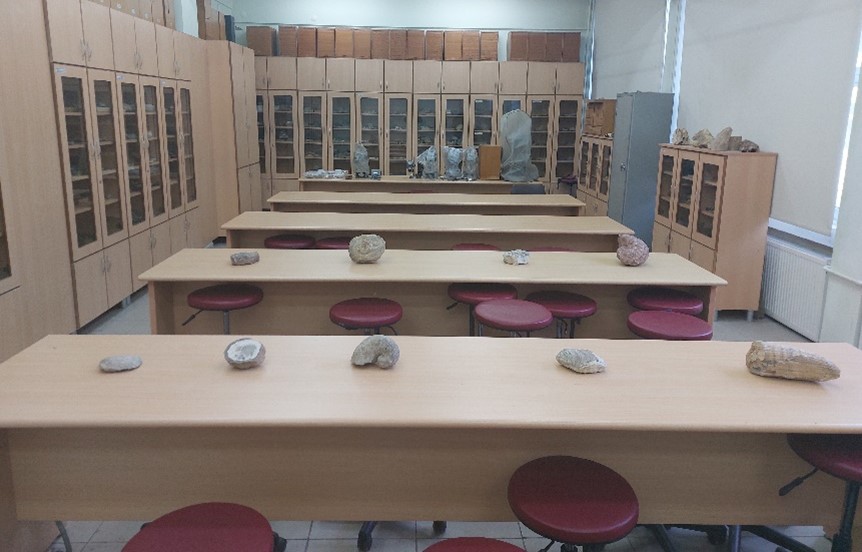 |
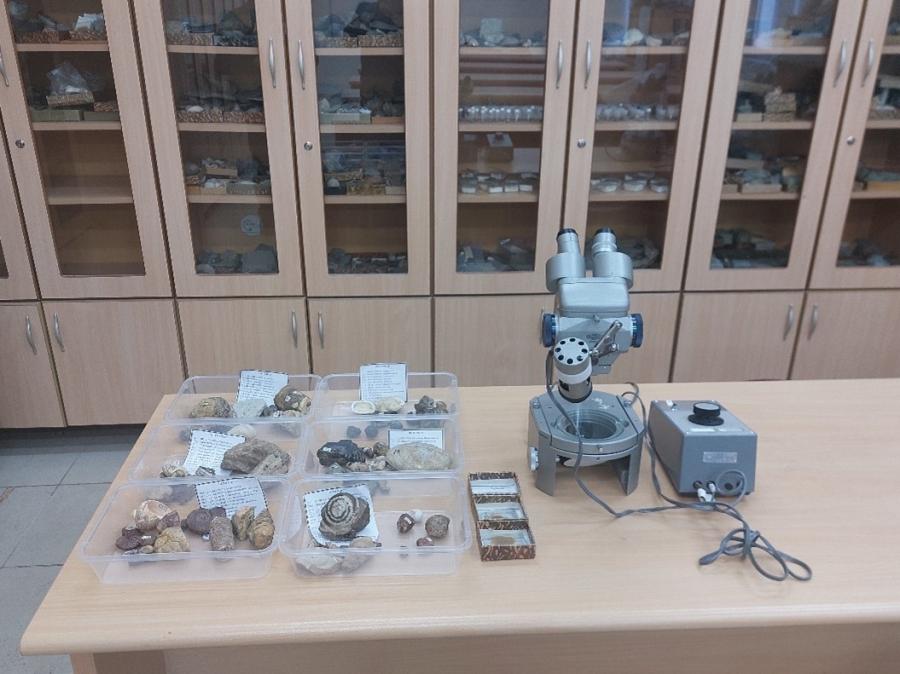 |
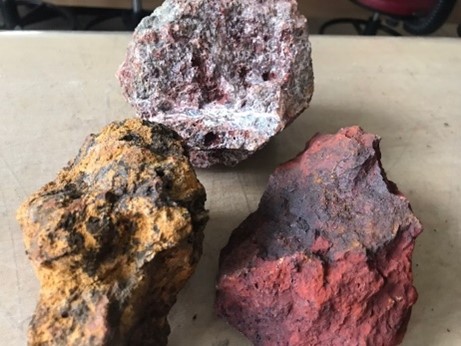 |
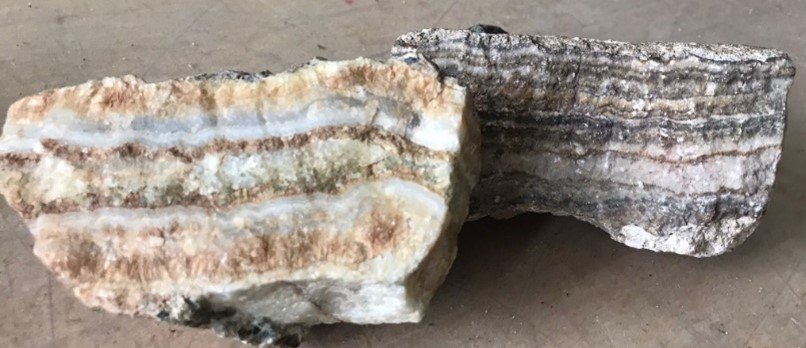 |
Students who are new to Geological Engineering are introduced to rock-forming minerals and rocks through macro examples in this laboratory within the scope of the Physical Geology Course. There is a rich archive of rock-forming minerals and igneous, metamorphic and sedimentary rock groups available to students in the laboratory. In addition, this laboratory is used for the detailed introduction of sedimentary rocks and sedimentary structures within the scope of the Sedimentology Course. In addition to sedimentary rock types in the laboratory, there is also a sedimentary rock archive including intra-layer, over-layer and sub-layer structures.
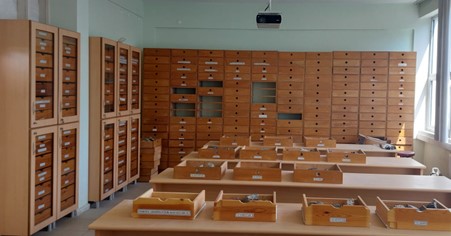 |
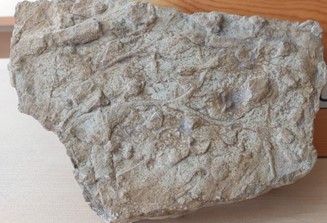 |
Our department's Applied Geology Laboratory is equipped with modern testing devices suitable for today's technology. Almost all of the test devices used to determine the physical and mechanical properties of soil and rocks are available in our laboratory. Our laboratory consists of sections where rock mechanics and soil mechanics tests are carried out, a sample preparation section where coring, cutting, and grinding processes are carried out for test samples to be used in rock mechanics tests, and sections where aggregate tests are carried out. Tests in these laboratories are carried out according to the most widely used recommended methods and standards in the world such as the International Society of Rock Mechanics (ISRM), American Testing Standards (ASTM) and British Standards (BS) and Turkish Standards (TS) of the Turkish Standards Institute (TSE).
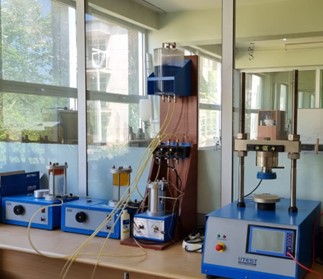 |
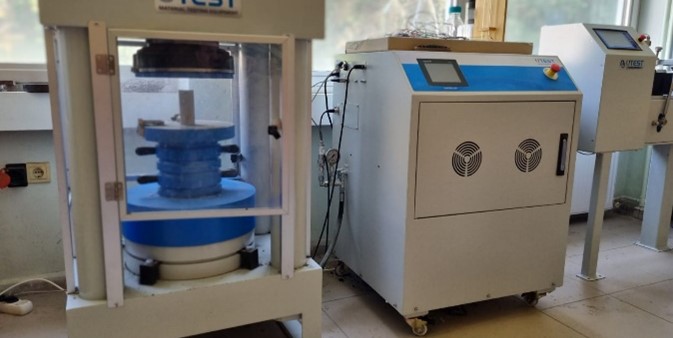 |
 |
Our department, which had its first graduates in 1973, has graduated more than 2 thousand students.
Our graduates are employed in:
General Directorate of Mineral Research and Exploration (MTA),
Turkish Petroleum Inc.,
İlbank A.Ş.,
General Directorate of State Hydraulic Works (DSI),
General Directorate of Highways (KGM),
Disaster and Emergency (AFAD) Management Presidency,
Ministry of Environment, Urbanization, and Climate Change,
General Directorate of Mining and Petroleum Affairs,
Turkish Hard Coal Corporation,
Turkish Coal Enterprises Corporation,
Special Provincial Administrations,
Different institutions and organizations such as municipalities.
Additionally, we have graduates who both start their own businesses and work as engineers in the industry (in the field of mining, dams-HEPP construction sites, soil surveying, water-drilling, building control, occupational safety offices). Some companies owned by our graduates are listed below:
- ALYANS MARBLE - DENİZLİ
- KUZEY MADEN CONSTRUCTION CONTRACTING MACHINE INDUSTRY AND TRADE LIMITED COMPANY
- KAYA ENGINEERING - TRABZON
In addition, we have many graduates who work as academicians in many of the universities that provide geology education in our country.
Click here to get information about Double Major and Minor Programs (application, acceptance and registration conditions, etc.).
As of 2023-2024:
Geological Engineering Department Double Major Undergraduate Curriculum
Department of Geological Engineering Minor Education Program
|
Geological Engineering Undergraduate Program Central Placement Quota and Base Scores by Years |
||
|
2023 |
||
|
Quota |
Max. Score |
Base Score |
|
15 |
326,83 |
309,25 |
Click here to get information about our department through HEB (YÖK) Atlas.
16 July 2024